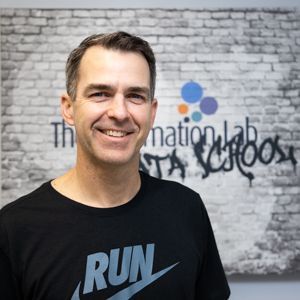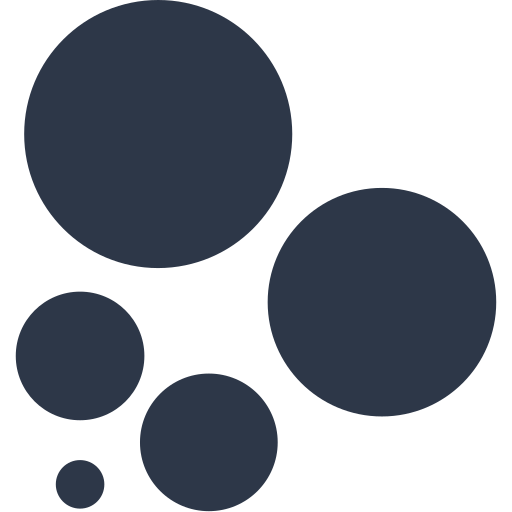Following my presentation at this week's Meet and Greet, I decided to write up some of the topics I touched on. The application process is different for everyone so this is just from my own personal experience.
WARNING: This could be a long one!
I decided to apply for the Data School in March 2021, having stumbled across the Information Lab online. With a degree in History and French at university, I felt I was underqualified for a career in data analytics and consulting but decided to apply nonetheless. This is where I think the Data School is really unique: you will be judged on what you can do and the potential that demonstrates rather than the contents of your CV. If you're interested in the mentality behind the hiring process, our founder Tom Brown has written a couple of articles on his LinkedIn that I would recommend having a look at:

So what do you need? No prior experience is needed with data analytics or the software. What's really important is your passion and willingness to learn.
Why the Data School?
I count myself lucky to be able to say I genuinely love my job. I would be lying if I said that it it isn't hard work, but I am fortunate to be learning from a wide range of experts in their field and it's great to be challenged every day and seeing myself improve is really rewarding.
I also love the open and collaborative company culture at the Data School. To read a bit more about what makes the Data School great check out the blogs on our website!
Step 1 - join Tableau and decide what cohort
The Data School hires 8 applicants every 2 months so pick a cohort that works for you. I would always recommend giving yourself more time than you need...the team can spot a rushed dashboard a mile off and it's not worth submitting something half done for the sake of 2 months. Make sure you are truly happy with what you have created before you submit it.
Step 2 - Get inspired!
The internet is full of great resources for inspiration. I would recommend creating a Tableau Public account and having a look at the amazing visualisations that have been made - you can download them to your computer and reverse engineer them if you see something you'd like to use!
Andy writes a blog showing the successful candidates for each cohort - this is a great way to see the kind of thing you should aim to be creating.

The 'Our Team' page on our websites includes links to the Tableau Public profiles for all of our team - have a look to see the kind of things we were creating when we were applying and an insight to what we've been doing since we started!
3 - Find data
You will be spending a lot of time on this application so try to pick something that genuinely interests you. No topic is too strange: I chose to do my application on European Witchcraft based off a module I did at university. Pick a pre-existing data source - I built mine on multiple excel spreadsheets and made things unnecessarily harder for myself.
Before you start...PLAN.
Think about the story you want to tell - is there a question to be answered? Do not do a 'data dump', everything on your viz should serve a purpose. This is where I think my experience in essay writing really helped me out!
Building your viz:
- Plan - I cannot stress how important it is to plan your viz first. It gives you a good idea of where you're going with your analysis
- Space - there is no limit on size for your dashboards. Don't cram your charts into small spaces, use padding to space it out nicely and keep it clear
- Containers - check out our videos on container use. It's a great skill to understand and there is nothing worse than uploading something and seeing the formatting completely change
- Tooltips - don't forget about them! Go back over the auto-generated tooltips and make sure they show key information clearly
- Colours - think about your colours! Pick a colour scheme and stick to it. Remember colour is a great way to form associations or emphasise. Keep your colour legends consistent. It is also worth considering colour-blindness when choosing your colour palette.
- Text - not too much! Your text should be used for key information, analysis and to provide key insights. It can also be used to tell your user how you want them to interact with the dashboard
4 - Share your creations!
Use this as an opportunity to really sell yourself! Your personality is just as important as your tableau skills.
You may get some feedback on your application at this point. Always take this on board, think about the improvements suggested and implement them. Be prepared to talk about the feedback you received and how you responded...a growth mindset is key in this role!
Get involved!
If you don't already have a twitter account then I would strongly recommend creating one. This is a great forum for seeing what people are up to, getting feedback and interacting with the data community.
Andy runs a weekly community project called Makeover Monday - I'd do as many of these as you can. It's great practice and an opportunity to try new things. I still try to use Makeover Monday as a additional learning resource! Once you've created your dashboard, share it on twitter and see what feedback you get!

This is also a great way to build your Tableau Public profile which will act as an online portfolio. Use this as an opportunity to demonstrate what you're capable and your passion for what we do!
Don't be afraid to reach out! Everyone at the Data School is always happy to help, find us online (our social media profiles are linked on the website) and just ask! Obviously we can't tell you how to build you viz but we are more than happy to talk about our application experiences, how we find the Data School, give advice and/or feedback.
6 - Phone Screen Interview
DON'T PANIC. This is an informal call with a member of the interview team. You will be asked to present your application dashboard and talk a bit about the choices you made. Stay calm, you built the dashboard, there is no reason why you can't talk about it. Make sure to rehearse your presentation, it's painfully obvious when someone is making it up on the spot and the presentation aspect is just as important as your viz. This also gives you the chance to show who you are!
7 - Stage 2
You made it to stage 2...congrats!
In the final stage everyone is given the same data and is asked to create a visualisation. Again, think about the question you want to answer: the data set will be vast and it's okay to filter out the information that isn't relevant to your story. In my final dashboard I only used about 1/3 of the original data set.
Don't overcomplicate things. Yes it's important to incorporate a certain level of difficulty but sometimes simpler is better! Choose your charts for the purpose they serve rather than how difficult it is to build...there is nothing wrong with a bar chart!
You will be given a Data Schooler to provide feedback on what you've created so far. Make the most of this opportunity to ask questions and learn more about the process and training should you be successful. We may be asked about how you conducted yourself as this stage so keep that in mind!
8 - The Final Interview
This is a more formal interview in front of a panel. This can be intimidating but it's important to remember that no one is trying to trip you up, the interview team want to see you do well! As always, just be yourself!
However, this is still a job interview so it is also important to conduct yourself professionally and demonstrate some knowledge on the Data School, what we do and a bit about our competitors. If you get a particularly hard question it's okay to ask for a minute to think your response through first.
You will be asked to present your final dashboard - this is capped at 5 minutes. Pretend that you are presenting this to a client and talk about the data, your analysis and any conclusions and insights you have drawn from it.
Be prepared to talk about the resources you used - saying you used google/the internet is always a valid response.
The important thing is to have fun with it! The application process shouldn't be a chore, if you find yourself hating what you're doing then this probably isn't the job for you!
Didn't get in? Don't be disheartened. It's hard when you put in all that work and you don't get the result you wanted but this doesn't have to be the end of your Data School journey. There are multiple possible outcomes: you could be asked to repeat the final stage for the next cohort or you could be invited to apply again in the future. Use this as an opportunity to develop and try again! Plenty of Data Schoolers didn't get in their first time!
Helpful resources:
- Read the Data School Blogs - they range from general advice, recounting personal experiences/challenges and walk-throughs of technical skills.
- Thursday Trainings - these are run by the Information Lab and are a great way to get a handle on the basics https://www.meetup.com/Lets-talk-Data/events/
- Tableau Community Forums - I used this a lot in my application. If you find yourself stuck, chances are someone else has had the same problem!
- Youtube - check out the Information Lab channel as well as our Head Coach Andy's videos on his channel for tutorials and ideas https://www.youtube.com/user/theinformationlab https://www.youtube.com/channel/UCTlX7UpqASrldmx5_CpG3CA



